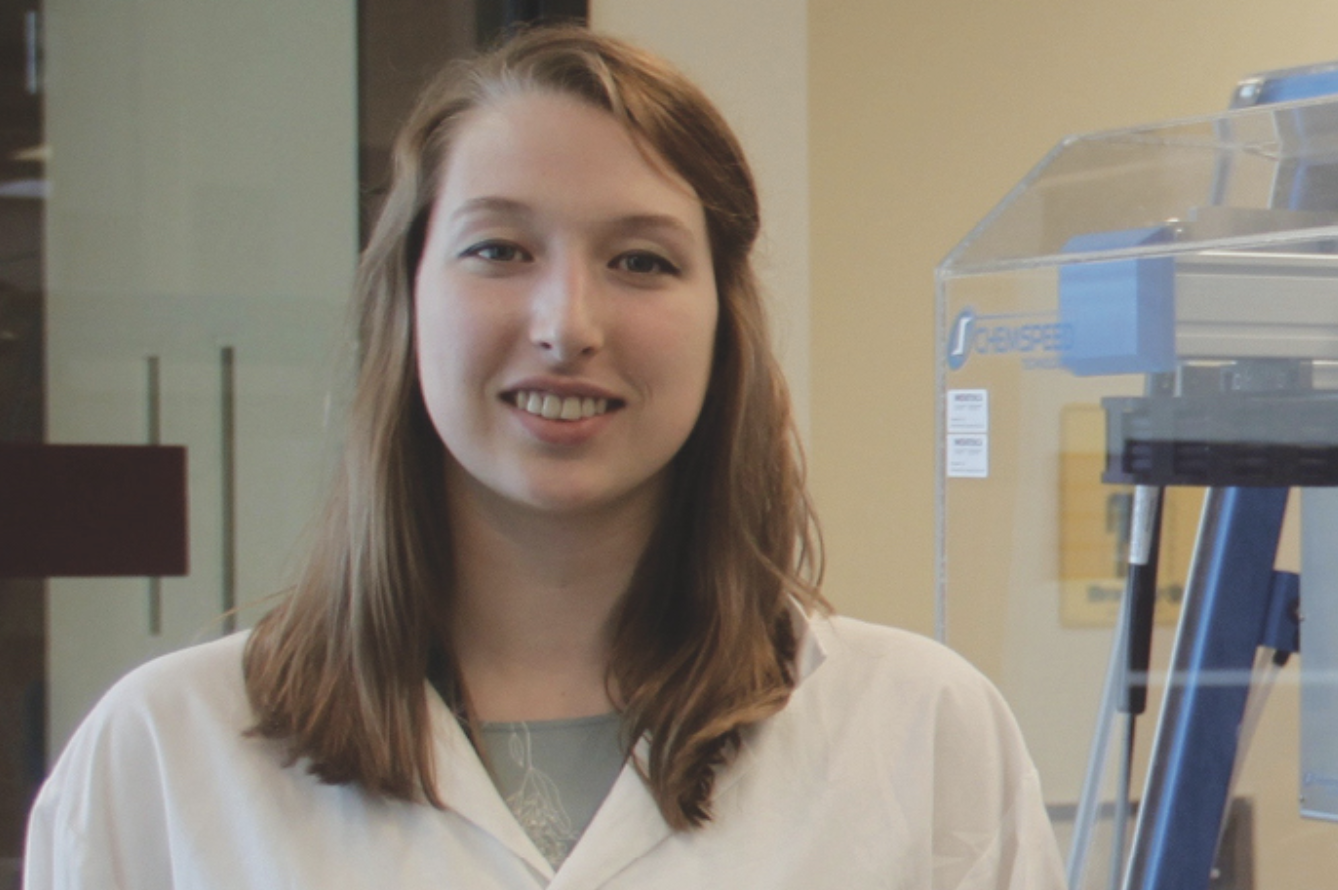Q&A with IIDR Summer Fellowship Recipient Briony Lago

Briony Lago, a fourth-year student in the Faculty of Science, is one of 10 IIDR trainees to have received the Institute’s prestigious Summer Fellowship Award. The highly competitive fellowship, now in its fourth year and worth $1,000, is designed to support students working in the labs of IIDR members during their summer practicum, which runs from May to August.
Whose lab are you working in, and what drew you to their research?
I’m working in Dr. Andrew McArthur’s Lab this summer. What drew me to his research was the interdisciplinary nature of the work. In the lab we focus on the intersection between computer science, biology and biochemistry, and as a chemical biology student, this interdisciplinary approach is something that interests me. Working in the McArthur Lab also provides me with the opportunity to expand my skill set in the areas of data management and computer programming.
Describe your research project
As a member of the McArthur Lab, I’m working on several research projects. My primary focus is on an RNA-sequencing project in collaboration with a lab at Bates College in Maine. With this project we’re analyzing the effect of pro-oxidants on embryological development in zebrafish, as well as the specific effects from the knockout of a gene called Nfe2, which is hypothesized to be involved in antioxidant responses.
I also work a fair amount on curating the Comprehensive Antibiotic Resistance Database, or CARD, which is the primary focus of the McArthur Lab. As a curator, I do primarily literature-based curation, where I use publications as the basis for updating and adding information to the database to keep it consistent with the current knowledge base. Additionally, I’m also involved in model development, which applies to the Resistance Gene Identifier functionality built into CARD. This enables users to screen sequences for potential resistance genes.
Finally, I’ll be starting work on a Human Transcriptome and Metabolome project, which is in collaboration with labs in the Departments of Kinesiology, Chemistry and Biochemistry. The data is from reduced activity interventions in elderly patients, and I’ll be analyzing muscle tissue gene expression. I hope to successfully merge this data with metabolite data to gain a comprehensive picture of the physiological responses.
What are the real world applications of your research?
Preliminary results from the Human Transcriptome and Metabolome project indicate that reduced activity leads to significant increases in pre-diabetic markers. Therefore, understanding the gene expression profile could have interesting impacts on diabetic treatments and prevention.
Regarding the global antibiotic resistance problem, my work on CARD is a part of the lab’s overall effort to create a comprehensive database of knowledge for researchers to use for clinical identification and to identify new threats as they emerge.
What do you hope to accomplish during your fellowship?
Since my background is chemistry-centred, I’m hoping to develop my biology knowledge, especially around antibiotic resistance and its mechanisms. Similarly, computer science and data management are also very new fields to me, so gaining skills in these areas is another personal goal of mine.
What is your end goal, in terms of a career?
I hope to pursue medicine, and I’m currently thinking of specializing in either radiology or endocrinology. As a chembio student, endocrinology seems like a great way to merge my chemistry interests with medicine, since hormones are the chemical messengers of the body. My interest in technology is what draws me to radiology, but I’ll have to wait and see which specialty is a better fit. That being said, I like to say I’m aiming myself toward medical school, but I’m open to being distracted. If I happen to fall in love with a topic along the way, maybe I’ll pursue grad school or an industry career. Maybe I’ll figure it all out by the end of the summer!
NewsRelated News
News Listing

McMaster Health Sciences ➚
Overcoming resistance: McMaster researchers find new utility for old antibiotics
News
January 6, 2025

December 19, 2024


